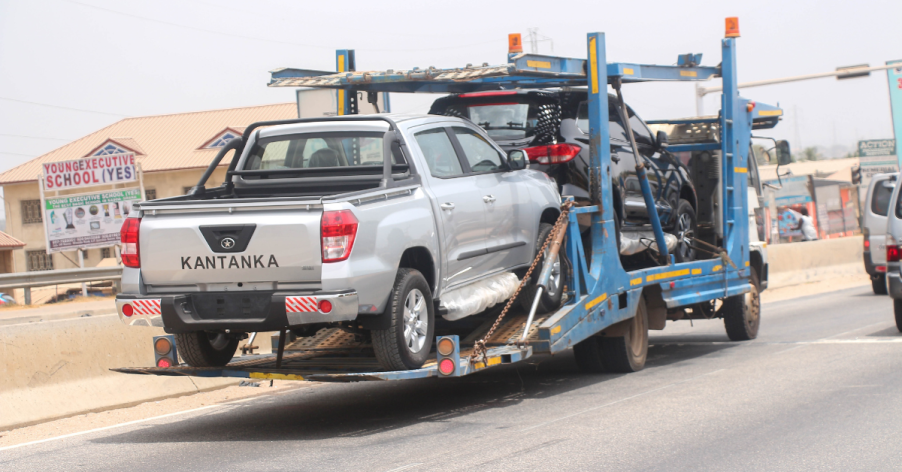
15 Steps To Recover An Impounded Vehicle

Having your vehicle impounded can be stressful, often due to unpaid fines, parking issues, or driving without valid documentation. Knowing how to recover your car is essential to avoid costly fees and complications. Follow these 15 steps to reclaim your vehicle efficiently and minimize delays.
Find Out the Reason for Impoundment

Contact the local law enforcement agency or parking authority immediately to find out why your car was impounded. Common reasons include parking offenses, expired registration, driving without a valid license, unlawful driving offenses, or involvement in unlawful activity.
Obtain the Impound Location

Once your car is impounded, it is towed to a government impound lot or a private towing facility. To find its location, contact the local police department or the agency that impounded the vehicle. Authorities often issue an impound notice with details about the location.
Ask for Necessary Documentation

To retrieve your car, you must provide documentation proving ownership and compliance with the law. Gather your driver’s license, car registration, and proof of insurance before heading to the authorities. In cases involving criminal offenses, you may need court documents or an impound release form.
Inquire About Fees

Impoundment incurs multiple costs, including towing charges, daily storage fees, and administrative fines. The price you’ll have to pay will depend on the location and the circumstances of the impoundment. For instance, towing fees may increase if your car is impounded in a remote area.
Act Quickly to Minimize Fees

The impound fees accumulate daily, with storage fees sometimes reaching $30 to $50 daily. If you delay too long, the authorities may sell your car at auction to recoup unpaid fees. Some jurisdictions have strict time limits, after which you lose ownership rights.
Check for Unpaid Tolls or Violations

In some cases, your car may be impounded due to unpaid tolls, emissions offenses, or other infractions you might not be aware of. Contact the relevant toll authorities or municipal agencies to check if there are any outstanding issues and resolve them immediately.
Understand Your Rights

Familiarize yourself with local impoundment laws and regulations to ensure you are treated fairly. Vehicles are sometimes wrongfully impounded, or excessive fees are charged. If you believe your car was unjustly impounded or the fees are unreasonable, you can contest.
Seek Legal Advice If Necessary

A lawyer should be consulted if you are facing charges regarding reckless driving or illegal modifications surrounding the impoundment. With the help of an attorney, you can understand your rights, negotiate impound fees, and guide you through the court processes.
Verify Insurance Coverage

If your car was impounded due to a lack of insurance, or if your insurance lapsed while your vehicle was impounded, you must renew or purchase a valid policy before retrieving the car. Some impound lots require proof of insurance as a condition for release.
Clear Any Outstanding Tickets or Fines

It is necessary to pay any unpaid tickets or other fines before the vehicle is releasd. The payment process varies by location. In some cities, you are required to settle these fines at the court or municipal office.
Monitor Your Vehicle’s Auction or Disposal Timeline

Each area has specific regulations on how long a vehicle can be held before it is sold or disposed of. Ask the authorities about the deadlines, and if you cannot pay right away, inquire about payment arrangements to avoid losing your vehicle.
Bring Payment Methods

Before visiting the impound lot, confirm which payment methods are accepted for settling impound fees. Many impound lots only accept cash, money orders, or certified checks. In addition, some places may have specific business hours for processing payments.
Confirm Your Vehicle’s Condition

Towing and impoundment can sometimes result in accidental damage, such as dents or scratches, or, in rare cases, theft of personal belongings left in the vehicle. Document everything with photos and report it immediately to the authorities.
Arrange for Transportation

You may not be able to drive your car out of the impound lot if there are mechanical problems, expired registration, or suspended license issues. Therefore, arranging a backup transportation plan is wise, such as a friend driving you or calling a taxi.
Request a Hearing or Appeal If Applicable

Sometimes, you can contest the impoundment by requesting a hearing or filing an appeal. Instances like wrongful towing from a lawful parking spot or unclear signage are possible grounds for a refund of fees or compensation.
Prepare for Future Scenarios

Once you’ve successfully retrieved your vehicle, it’s important to address the root cause of the impoundment and make adjustments. Keep your registration and insurance up to date, pay any fines or tickets immediately, and be mindful of parking restrictions.


